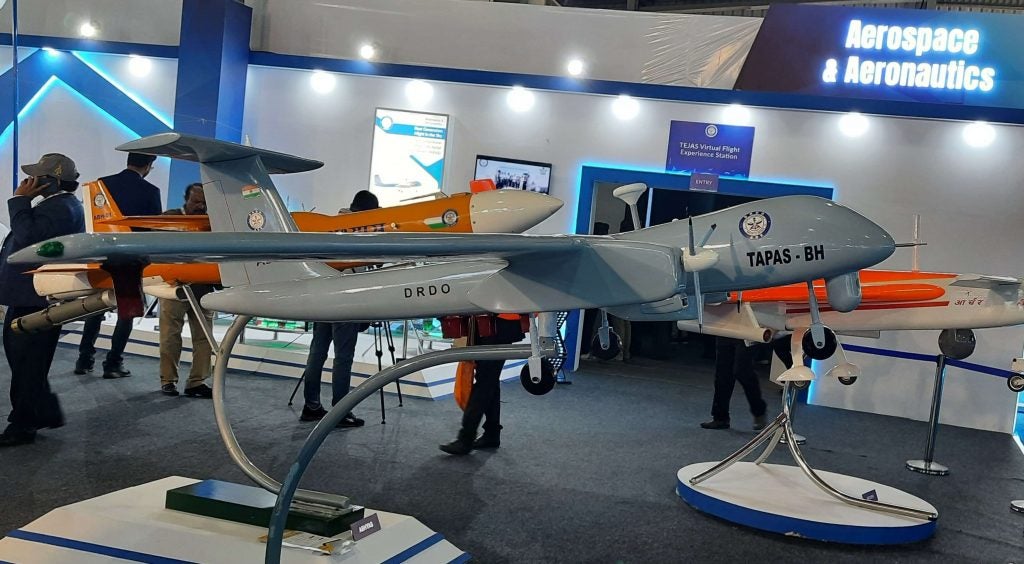In a significant stride towards bolstering its defense capabilities and advancing aerospace technology, India has embarked on a groundbreaking endeavor known as the Tapas (Tactical Airborne Platform for Aerial Surveillance) drone project. Developed by the Defense Research and Development Organization (DRDO), the Tapas project represents a leap forward in the indigenous development of unmanned aerial systems (UAS) aimed at enhancing reconnaissance, surveillance, and intelligence-gathering capabilities.
Unveiling Tapas: A Technological Marvel
The Tapas drone, also known as Rustom-II, is a medium-altitude, long-endurance (MALE) unmanned aerial vehicle (UAV) designed for both civilian and military applications. It boasts an impressive array of features, including autonomous takeoff and landing capabilities, long-endurance flight capability of up to 24 hours, and a robust communication suite for real-time data transmission.
Equipped with state-of-the-art sensors, including electro-optical and infrared (EO/IR) cameras, synthetic aperture radar (SAR), and electronic intelligence (ELINT) systems, the Tapas drone provides comprehensive situational awareness over vast territories. Its ability to operate at altitudes of up to 30,000 feet enables it to conduct surveillance missions with unparalleled efficiency, making it an invaluable asset for defense and security operations.
Strategic Significance and Operational Capabilities
The Tapas drone project holds immense strategic significance for India, particularly in the realm of national security and defense. With its advanced reconnaissance capabilities, the Tapas drone enhances the country’s ability to monitor borders, detect security threats, and gather critical intelligence in real-time, thereby strengthening its defense preparedness and response mechanisms.
Moreover, the Tapas drone’s versatility extends beyond military applications, finding use in civilian domains such as disaster management, environmental monitoring, and infrastructure surveillance. Its ability to operate in challenging terrain and adverse weather conditions makes it a valuable asset for various non-defense applications, contributing to enhancing overall safety and security.
Indigenous Innovation and Technological Advancements
The development of the Tapas drone underscores India’s growing prowess in indigenous defense manufacturing and aerospace technology. Spearheaded by the DRDO in collaboration with domestic industry partners, the project signifies a significant leap in the country’s quest for self-reliance in defense production and innovation.
Furthermore, the Tapas drone project reflects India’s commitment to leveraging cutting-edge technologies, including artificial intelligence (AI), machine learning, and advanced materials, to develop world-class defense capabilities. By nurturing a robust ecosystem of research institutions, academia, and industry stakeholders, India aims to establish itself as a global leader in unmanned aerial systems technology.
Future Prospects and Global Collaboration
As the Tapas drone project progresses, India looks towards further advancements and enhancements to its unmanned aerial systems capabilities. Future iterations of the Tapas drone are expected to incorporate upgrades in performance, endurance, and sensor capabilities, further augmenting its effectiveness in diverse operational scenarios.
Moreover, India’s foray into unmanned aerial systems technology presents opportunities for collaboration and partnership with other nations and international organizations. Through collaborative research and development initiatives, India seeks to exchange expertise, share best practices, and contribute to the advancement of global aerospace technology, fostering cooperation and synergy in the pursuit of common goals.
Conclusion
India’s Tapas drone project represents a landmark achievement in the indigenous development of unmanned aerial systems, signaling the country’s emergence as a key player in aerospace technology and defense innovation. With its advanced capabilities, strategic significance, and commitment to indigenous manufacturing, the Tapas drone project embodies India’s vision for self-reliance and technological excellence in the defense sector. As the project continues to evolve, India stands poised to redefine the landscape of unmanned aerial systems technology, paving the way for a safer, more secure future.




